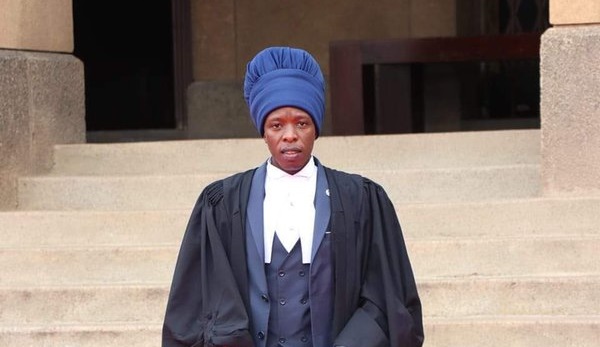Kenya has its first Rastafarian advocate who has now been called to the bar in the east African nation.
Mathenge Mukundi on last Friday wore a blue turban and walked to the Supreme Court building in Kenya to be admitted to the Bar.
He was admitted alongside 197 new advocates including Kenya’s cabinet Secretary Amina Mohamed.
Mukundi will now become Kenya’s first advocate of the Rastafarian faith, an achievement that speaks volumes about the changing dynamics of the Kenyan society.
He told the Daily Nation that “As a diehard human rights and fundamental freedoms enthusiast, I will work towards fighting for the rights of minorities and marginalised groups.”
Kenya’s National Council for Law Reporting congratulated Mukundi in a statement on Twitter.
It said “According to our policy to give opportunities to diverse members of the society, Mr Mathenge Mukundi, a practicing Rastafarian, did pupillage with us last year and was admitted to the Bar as an advocate.”
According to our policy to give opportunities to diverse members of the society,Mr Mathenge Mukundi a practicing Rastafarian did Pupillage with us last and was admitted to the bar as an Advocate yesterday.Congratulations to him pic.twitter.com/YFmYcaUjq2
— Kenya Law (@MyKenyaLaw) July 3, 2020
Historic feat
The feat is considered historic in East Africa as most countries including neighbour Uganda do not allow Rastafarians to become advocates.
Often persons with dreadlocks are discriminated against in many African societies. They now being allowed into court rooms to practice law because of their dreadlocks.
They are often not considered as practicing a faith but rather associated with social vices in society.
Last year Kenyan courts ruled that Rastafarianism is a religion just like any other and they should be treated as the rest.
Rastafarianism though is an Africa-centred religion, traced to Jamaica in the 1930s after Haile Selassie I (1892-1975) was coronated as King of Ethiopia.
Rastafarians follow biblical teachings which among others prohibit eating certain foods and cutting of the hair, as a sign of their dedication to God’s teachings.
Keeping their hair is a manifestation of their faith, according to those who practice the religion.
Source: Africafeeds.com


